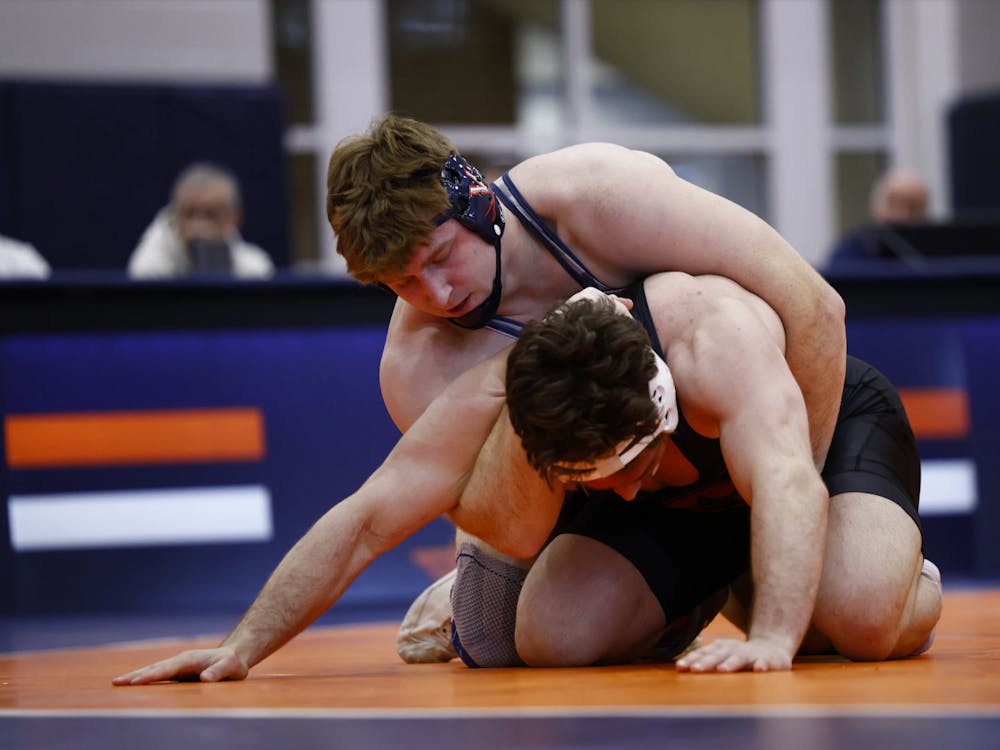Is college athletics threatening the integrity of higher education? The Knight Foundation Commission on Intercollegiate Athletics thinks so.
On June 26, the Knight Commission released a 48-page report that severely criticized the state of intercollegiate sports and made suggestions to reconnect college sports to higher education. The commission, established in 1989, is a private foundation with the purpose of drafting a reform agenda for the administration of intercollegiate sports.
Three days after the commission released its report, campus chief executives representing the Atlantic Coast, Big East, Big Ten, Big 12, Southeastern and Pacific-10 conferences met in Chicago to discuss the issues that the report addressed as well as the report's recommendation for the establishment of a Coalition of Presidents - an independent group representing college presidents from the six most prominent athletics conferences that will enforce a new agenda of promoting academics and de-emphasizing commercialism in college sports.
According to The Chronicle of Higher Education, the group came to conclusions that did not agree with the report's recommendations and would not fulfill the role of the Coalition of Presidents.
However, University President John T. Casteen III, who attended the meeting, said the Chronicle's article is misleading, and that he is in favor of the coalition and the ideas of the commission.
"We favor a presidents' council to supplement the NCAA to protect the integrity of intercollegiate sports and the interests of student athletes, especially when the interests have to do with satisfactory completion of academic programs," Casteen said. "I am working with others who support the idea to make sure that the organization is acceptable."
According to the report, the NCAA "cannot independently do what needs to be done" to keep sports "clean." The commission therefore suggested the establishment of the coalition, which would work alongside academic and athletic associations with efforts to make changes to the NCAA and other groups governing college sports.
The commission issued a similar call for reform 10 years ago, but it noted in its latest report that athletics poses an even greater threat to higher education now than it did in 1991. According to the report, declining graduation rates and accelerating costs and revenues in big-time college sports have caused schools to lose focus on their educational mission.
Among the report's recommended reforms for intercollegiate sports are imposing graduation rate requirements for teams to be eligible for postseason play, treating athletes like other students and reducing the number of football scholarships.
"The Knight Commission is to be applauded for looking at ways to address academic integrity," said Wallace Wrenfro, a spokesman for the National Collegiate Athletic Association. The commission "wants to make sure that student athletes are fulfilling their promise to be educated and that we are fulfilling our promise educate student athletes."
The report called on the NCAA to require teams to graduate at least 50 percent of their athletes in order to compete in conference and national championships. Out of the 321 schools with Division I basketball teams, 180 failed to meet that standard in 2000.
The commission, concerned that athletes were segregated from other students, recommended schools to "mainstream" athletes through the same academic advising, tutoring, admissions and other processes that other students use. The report also called on the NBA and the NFL to form minor leagues "so that athletes not interested in undergraduate study are provided an alternative route to professional careers."
In addition, the commission demanded a reduced number of scholarships for Division I-A football teams. The current limit is 85 scholarships per year, but the report did not suggest a new limit.






